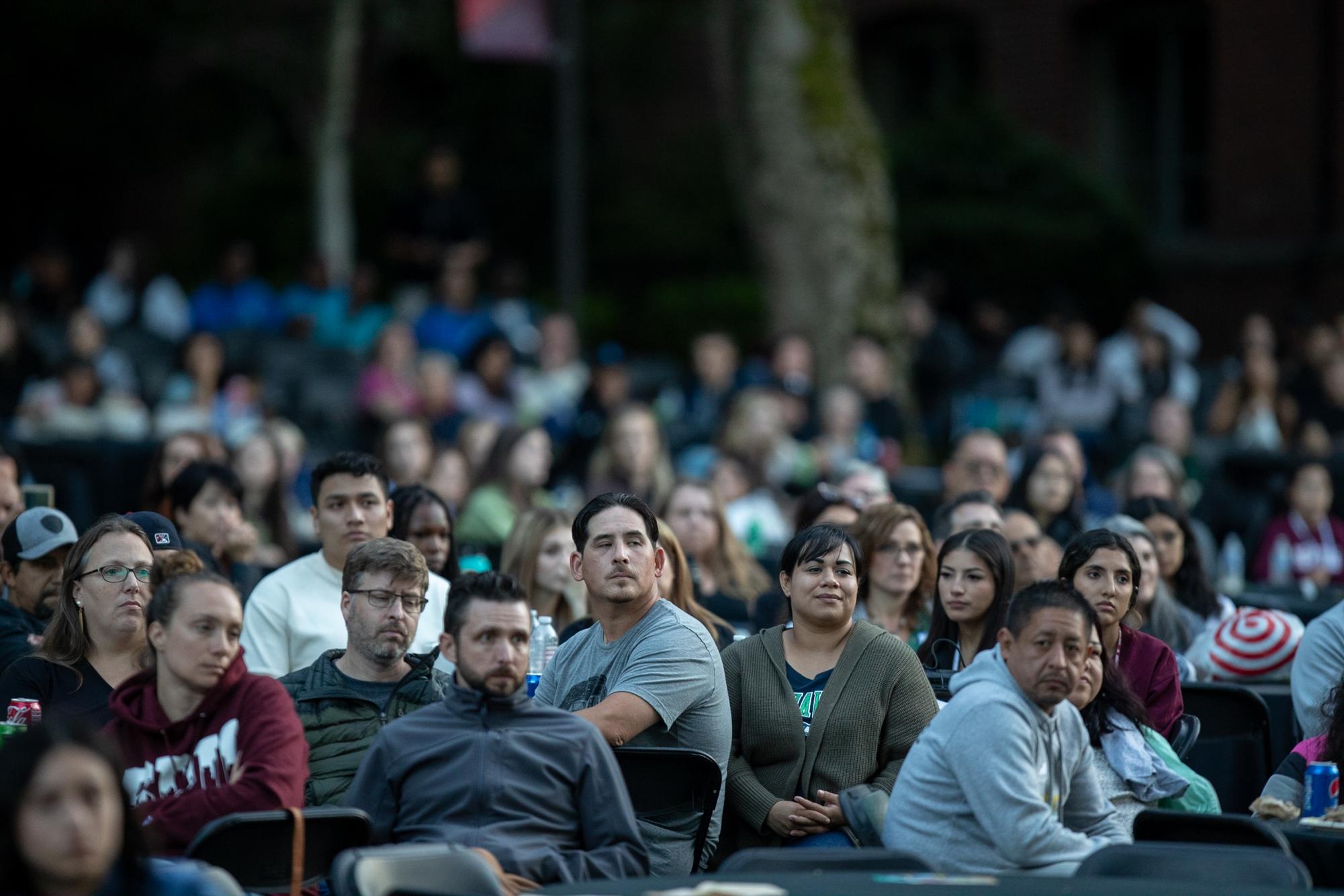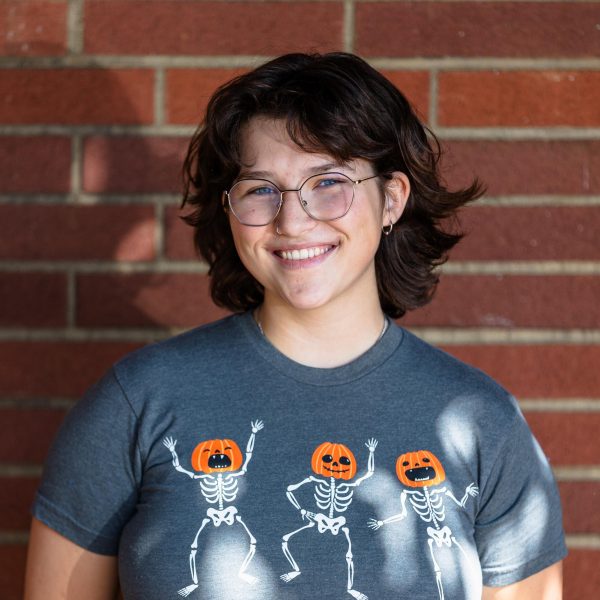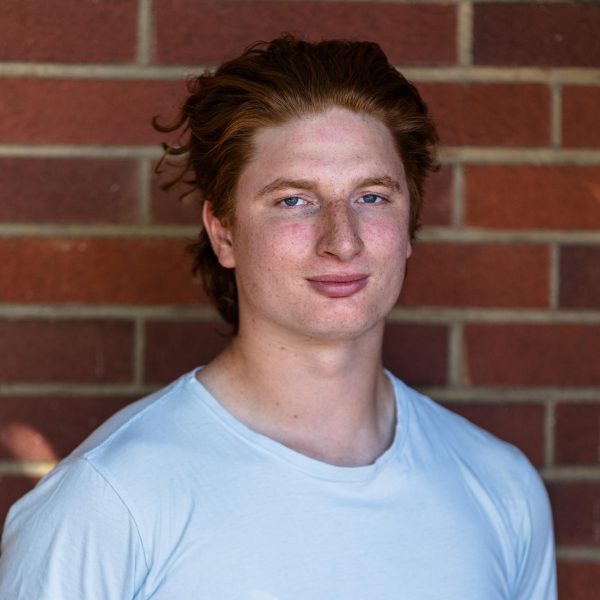
Abigail Young is set to graduate from Seattle Pacific University in 2024, mechanical engineering degree in hand. But four years ago, on the cusp of her second quarter at school, she stood silent on the phone, convinced that her time at SPU was over. She was going to drop out.
Young had just received her first room-and-board bill and called her parents for help in a sum-induced panic. They urged her to save her losses and quit. Neither she nor her parents understood the world of financial aid, scholarships and the structures in place to help students like her — students embarking on their higher education journey without parents who went through it too.
According to Mischa Willett, assistant professor of English and writing at SPU, first-generation students are far more likely to drop out of school than their classmates. Noticing a trend of “disturbing” low retention in first-generation freshmen, Willett and other faculty members developed what was initially a single three-credit class, the Ascent Scholars Program.
Now a sequence of two five-credit classes led by Willett, the program teaches first-generation students how financial aid, study abroad and other areas of uncertainty work. They additionally teach students how to format and write papers successfully.
“I started putting together this program, thinking, well, what would have helped me to stick around and make it the first time through?” Willett said.
Willett is qualified for the program, being first-generation himself. Before completing his degree and finding his career in higher education, he dropped out of college not once, but twice. Luckily for SPU, a professor talked him back into returning and continuing his education.
“All these small things that added up to my feeling like I didn’t belong there,” Willett said. “Every little breeze doesn’t blow you around if you have people you can ask about these things.”
To prioritize faculty-student relationships and program resources, Ascent classes are limited to 20 students at a time, with former students of Ascent acting as mentors to the freshmen.
The exponentially growing number of first-generation students on campus — 47% of 2023’s incoming class was first-generation — means that tens of the 226 first-generation freshmen access Ascent’s small classes. Three 20-person sections of the class in the 2022-23 academic year shrunk down to two sections in the 2023-24 academic year, split between English professors Mischa Willet, Ji-Young Um and Jeffrey Overstreet.
As a casualty of SPU’s 40% faculty cuts, Willett will leave SPU in 2024. He is uncertain of the future of the Ascent Scholars Program.
“I gave so much of my energy to this project. This is going to be no one’s focus unless they hire a new person,” Willett said. “It will look a lot different, probably as soon as next year.”
Other resources on campus for first-generation students include the Ascent Scholars, BioCore Scholars, the Center for Career and Calling and Student Financial Services.
Sydney Naour, senior elementary education major, is a current first-generation student.
“When I had a confusion or unfamiliarity whether it come to financial aid, coursework, or outside problems, I was connected with someone who could best support my needs,” Naour said. “However, I feel as though the resources to support 1st gen students are limited and basic. If the supports for 1st gen students were further developed, they may be more helpful.”
Naour struggled in school at first, but learned recently to advocate for herself and “reach out.”
“Not having those resources or connections really does determine how your college experience is going to turn out. If it wasn’t for those other people, I wouldn’t be here, and some students dropped out because of it,” Young said.
Students are urged by staff and faculty to know their options and ask questions.
“We are committed to walking alongside every student who enrolls at SPU, but also recognize that first-generation students need spaces to ask questions and be directed to resources they may not know about,” new President Porterfield, first-generation herself, wrote. “If you are a first-generation student, know that the questions you have are important and our faculty and staff are here to help you along the journey.”
First-generation students with someone to answer questions and provide direction are prone to staying and succeeding in college. Young hesitates to call herself “first-generation” because her mother graduated from a university in Russia – her master’s degree goes unused and unrecognized in the United States, leaving Young to be the first of her family to navigate college in the States.
After succeeding in high school and receiving high scholarships from SPU, Young decided to attend. But when the room-and-board bill hit, she was paralyzed, and her parents were unable to give help or advice. Fortunately, a friend’s father taught her how to support herself financially and access SPU’s resources. Young got on a payment plan and worked summers, always remembering her dream: to become an engineer.
“If it wasn’t for someone else who understood the system better than I did, I wouldn’t be here today, about to graduate,” Young said.
Willett, Porterfield and Young all agree that being first-generation or first-generation adjacent is hard. But at the end of the day and, for Young, by the end of the stage, it’s worth it.

















































































